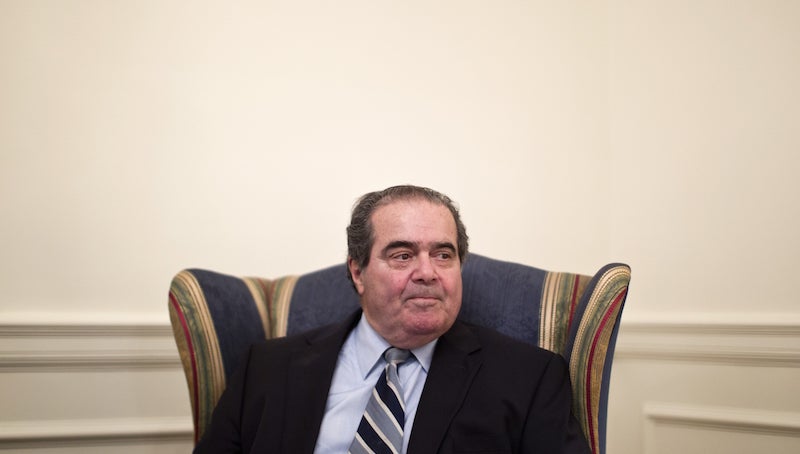Scalia is a KEY FIRGURE in unlocking the pedophile rings: Antonin Scalia Took Hundreds of Free Vacations Paid For By God Only Knows Who
from Gawker:

When Supreme Court justice Antonin Scalia died, he
was on a free hunting trip sponsored by a friend who had had business
before the Court the year before. Turns out Scalia took hundreds of
“free” trips—more than any other Supreme Court justice on the bench.
According to the New York Times, which examined the Center for Responsive Politics database, Scalia went on at least 258 so-called subsidized trips between 2004 and 2014. In 2014 alone, the paper reports, he took at least 23 free trips to places like Hawaii, Ireland and Switzerland.
(For comparison’s sake, the next most traveled justice over the same time period was Stephen Breyer, who took 148 trips. John Roberts took the least, with about 48 trips.)
At least some of Scalia’s free trips were for business purposes like “giving speeches, participating in moot court events or teaching classes,” but not all—Scalia was reportedly participating in a group hunting trip with a secret all-male society when he died.
And at least some of those vacations were sponsored by people who had or could reasonably be expected to have business before the Supreme Court.
In 2011, Scalia declined to recuse himself from the Citizens United case after it came to light that he and Justice Clarence Thomas had attended a Palm Springs retreat funded by Charles Koch and the Federalist Group, which reportedly sponsored at least 21 trips for Scalia to places like Park City, Napa, and Bozeman, Montana. The group, which also sponsored a trip for Justice Samuel Alito, declined to fund any trips for the more liberal justices.
John Poindexter, the owner of the hunting ranch where Scalia died, is also the owner of the Houston-based manufacturing firm, J.B. Poindexter & Co. Last year a subsidiary of his firm, a company called Mic, received a favorable outcome in an age discrimination case that reached the Supreme Court.
And it’s all totally legal. Justices can can pretty much do what they want as long as they promise to be impartial. In fact, had Scalia returned from the hunting trip, he might not even have had to tell anyone he went—accommodations paid for by private individuals are apparently exempt from disclosure rules.



No comments:
Post a Comment